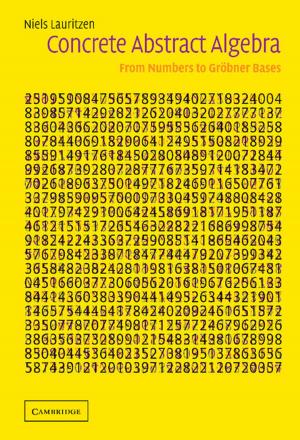Adjudication in Religious Family Laws
Cultural Accommodation, Legal Pluralism, and Gender Equality in India
Nonfiction, Reference & Language, Law, Social & Cultural Studies, Political Science, Religion & Spirituality| Author: | Gopika Solanki | ISBN: | 9781139063968 |
| Publisher: | Cambridge University Press | Publication: | April 25, 2011 |
| Imprint: | Cambridge University Press | Language: | English |
| Author: | Gopika Solanki |
| ISBN: | 9781139063968 |
| Publisher: | Cambridge University Press |
| Publication: | April 25, 2011 |
| Imprint: | Cambridge University Press |
| Language: | English |
This book argues that the shared adjudication model in which the state splits its adjudicative authority with religious groups and other societal sources in the regulation of marriage can potentially balance cultural rights and gender equality. In this model the civic and religious sources of legal authority construct, transmit and communicate heterogeneous notions of the conjugal family, gender relations and religious membership within the interstices of state and society. In so doing, they fracture the homogenized religious identities grounded in hierarchical gender relations within the conjugal family. The shared adjudication model facilitates diversity as it allows the construction of hybrid religious identities, creates fissures in ossified group boundaries and provides institutional spaces for ongoing intersocietal dialogue. This pluralized legal sphere, governed by ideologically diverse legal actors, can thus increase gender equality and individual and collective legal mobilization by women effects institutional change.
This book argues that the shared adjudication model in which the state splits its adjudicative authority with religious groups and other societal sources in the regulation of marriage can potentially balance cultural rights and gender equality. In this model the civic and religious sources of legal authority construct, transmit and communicate heterogeneous notions of the conjugal family, gender relations and religious membership within the interstices of state and society. In so doing, they fracture the homogenized religious identities grounded in hierarchical gender relations within the conjugal family. The shared adjudication model facilitates diversity as it allows the construction of hybrid religious identities, creates fissures in ossified group boundaries and provides institutional spaces for ongoing intersocietal dialogue. This pluralized legal sphere, governed by ideologically diverse legal actors, can thus increase gender equality and individual and collective legal mobilization by women effects institutional change.















